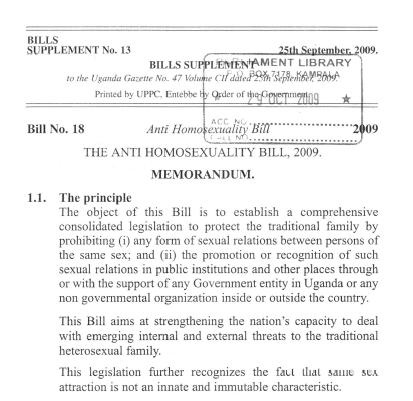One of the biggest problems I have with reparative therapy is the self-fulfilling nature of the approach. Reparative therapists assume that the existence of same-sex attraction means a person has suffered gender based trauma during a specific period of childhood.
Reparative therapist David Pickup has commented on another post that straight men may have wounds but, from his point of view, they are not as deep as those which haunt gay men. In other words, if a straight man says he was traumatized in the same way, the reparative therapist’s answer is that the trauma wasn’t deep enough to trigger the reparative drive leading to same-sex attraction. If the gay man says he does not recall any such trauma, then the reparative drive theory posits that the gay man has repressed it and needs to uncover it. It seems to me the powerful effects of confirmation bias are at work.
The assumptions necessary to work as a reparative therapist remind me of the assumptions often associated with the repressed memory movement. Especially during the decade of the 1990s, many therapists assumed that negative moods such as depression or relational problems were due to childhood abuse of some kind that had been forgotten via the defense mechanism of repression. Some therapists harbored a belief that clients who could not remember trauma from the past were in a state of denial. This belief led some therapists to repeatedly ask about recollections of trauma and hold out the possibility to their clients that they were simply unable to remember.
By questioning the mechanism of repression, I am not questioning the reality of gender based trauma. I am not questioning that some gay people had very impoverished childhoods. Of course that is true. But so did many straight people. In his recent comment, Mr. Pickup proposed that gay people have experienced deeper trauma than straight people experienced. This seems circular to me. How can you tell which experiences are worse? As far as I can tell, the way reparative therapists answer this question iss by knowing the sexual orientation of the client. Straight people have deep wounds; gay people, by definition according to the reparative approach, have deeper wounds.
As an illustration of how clients can adapt themselves to the theories of their therapists, I offer the experience of Carol Diament. Ms. Diament initially thought she would not need to detach from her family, as the other clients at Genesis Associates did. However, after awhile, “memories of abuse came up” and she detached from her parents (over three years), husband and even small children (at least 8 months and maybe longer).
Eventually Carol got away from Genesis, sought another therapist and came to realize that her memories were reconstructed with the help of her therapists at Genesis. By then, the damage was done. She had lost years of her life and had even lost her immediate family.
The clip is just over nine minutes long, but I hope you will watch it all the way through. Then, I hope you will discuss this and let me know what you think. Am I seeing a parallel with reparative theory that is valid or not?
Over the years, I have worked with many clients, gay and straight, who have experience significant trauma with parents. However, I have not been able to differentiate them based on the severity of their experiences. Furthermore, I know and have worked with many gay men and women who recall no deep trauma relating to their parents or peers. I also know gay men who experienced trauma after they came out to their parents because of the tension surrounding homosexuality. However, prior to the disclosure, the relationship was on par with any comparable straight person’s home life.
I also want to be clear that I am not closed to the possibility that certain childhood experiences could influence some people to question sexuality and engage in same-sex behaviors. In addition, some experiences of abuse are associated with risky sexual behavior of all kinds. Therapy, even reparative therapy, might help such people. However, I think these scenarios represent only a portion (probably very small) of the total gay and bisexual population.


